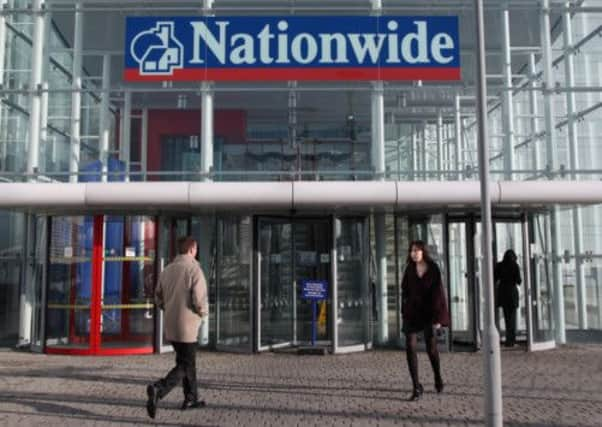Nationwide postpones small business loan move


Business leaders expressed dismay at the decision from the UK’s largest building society, which is understood to have put its move on hold as regulators force it to hold more capital as a buffer against financial crises.
Andy Willox, Scottish policy convenor at the Federation of Small Businesses, said: “The small business banking market needs more competition, especially in Scotland, so it is disappointing to hear that a major institution has delayed its plans to compete for custom.
Advertisement
Hide AdAdvertisement
Hide Ad“We need to develop a range of bank and non-bank finance options to ensure that businesses, large and small, can grow with the economy and survive bumps in the road.”
Attempts to increase funding for small companies have also taken a knock after the Co-operative Bank stopped lending to new business customers as it addresses a £1.5 billion shortfall in its finances.
Nationwide said last year that it planned to start lending to small and medium-sized enterprises in 2014, “bringing our values and standards as a mutual to a market that is crucial to the UK economy”.
However, the launch is understood to have been pushed back to 2016 after the Prudential Regulation Authority (PRA) ordered it to plug a £400 million hole in its balance sheet by bolstering its leverage ratio. The building society has been given breathing space by the PRA on meeting the tougher standard, and must hold capital worth 3 per cent of its loans by the end of 2015, up from the 2 per cent identified by the regulator.
Nationwide is confident that its “organic growth strategy” and track record in lending will enable it to achieve the PRA’s deadline. The firm has also set itself a target of growing its share of the current account market to 10 per cent, up from its existing 5.7 per cent share.
A spokeswoman said: “We have previously said that it is our strategic intention to enter the SME banking market and that we will do this at the right time for the society and our members. That remains our intention.”
Business Secretary Vince Cable last month stoked tension with the Bank of England by comparing policymakers to the Taleban over the tougher capital rules. He said the central bank’s demands that lenders must boost the levels of capital they hold to protect against future financial shocks was deterring small business lending and holding back the economic recovery.
Cable said: “One of the anxieties in the business community is that the so-called ‘capital Taleban’ in the Bank of England are imposing restrictions which at this delicate stage of recovery actually make it more difficult for companies to operate and expand.”
Advertisement
Hide AdAdvertisement
Hide AdFigures from the Bank of England show that Nationwide has drawn more than £2.5bn from its Funding for Lending scheme, which aims to ease the flow of finance to households and small firms by offering cheap funds to banks and building societies.
Net lending by the mutual grew by almost £1.2bn during the first quarter of the year, compared with declines of £983m and £1.6bn respectively at bailed-out lenders Lloyds Banking Group and Royal Bank of Scotland.